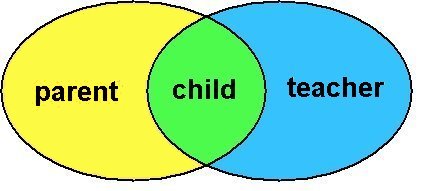Blog
Communicating with your child’s teachers
Danel DiVirgilio, the (sadly deceased) legendary Head of Lower School at the Hackley School in New York, used to end his annual Parent-Teacher nights in the same humorous way every year. After he’d shared all of the necessary logistical info with parents and before he’d send them off to their children’s classrooms, Dan would say the following:
“I will make you all a deal: if you don’t believe everything your children tell you about us, we promise not to believe everything your children tell us about you!”
While the intention of Dan’s proposed “agreement” was to start the evening off on an entertaining note, it did have a solid kernel of truth at its core: Direct communication between parents and teachers is essential if a student is to have a successful school year.
It is important to establish a good rapport early in the year and keep that positive tone throughout.
 As much as is possible, maximize prescribed opportunities to communicate with your child’s teacher. Come to parent-teacher nights and conferences whenever you are able, and arrive on time. If it is a one-on-one session, stick to your scheduled slot; if it is a group event, save your child-specific questions for a conference. But don’t wait until you have a lengthy laundry list of concerns to present; dealing with issues as soon as they arise will maximize the potential for a productive resolution.
As much as is possible, maximize prescribed opportunities to communicate with your child’s teacher. Come to parent-teacher nights and conferences whenever you are able, and arrive on time. If it is a one-on-one session, stick to your scheduled slot; if it is a group event, save your child-specific questions for a conference. But don’t wait until you have a lengthy laundry list of concerns to present; dealing with issues as soon as they arise will maximize the potential for a productive resolution.
The National PTA advises you to follow up on any conference or conversation with an email or phone call. Letting the teacher know what is working and what isn’t, after a plan of action has been implemented, can go a long way towards future success. And thanking the teacher for his/her “flexibility and willingness to make classroom changes,” when that is the case, will engender an ongoing openness to work with you in the future.
Try not to just stop by the school unannounced (unless, of course, there is an emergency) or use your volunteer time as an opportunity to talk to your child’s teacher(s) about issues specific to your child. Maximize the potential for a positive outcome by scheduling a meeting or a phone call at a mutually convenient time. Education.com also reminds you not to engage your child’s teacher in “school talk” if you run into him/her out and about.
Sending in a brief, informative letter with your child during the first couple weeks of school or emailing the teacher is a great way to show that you see yourself in a partnership. This is a particularly good idea if your child is new to the school or if there have been any dramatic changes in your family or your child’s life (divorce, death of a grandparent, a new sibling, a big move). Also, if there are any social or academic issues that you feel your child’s teacher should know about to best help your child learn and thrive, the earlier s/he is aware of them the better the teacher can address your child’s needs.
Finally, when you are unsure of something, ASK! Open-ended questions work well for some things (“Can you tell me about what happened between my son Freddy and one of his classmates on the playground today, please?”), but often focusing on one very specific issue at a time will prove more effective (“Could you please explain to me the method you are using to teach long division? I want to help my child do it the same way at home, but I’m not quite sure of how to approach the problems.”). Most times your child’s teacher will appreciate the opportunity to work with you so that together you can help ensure that your child has a productive and enjoyable school year.

